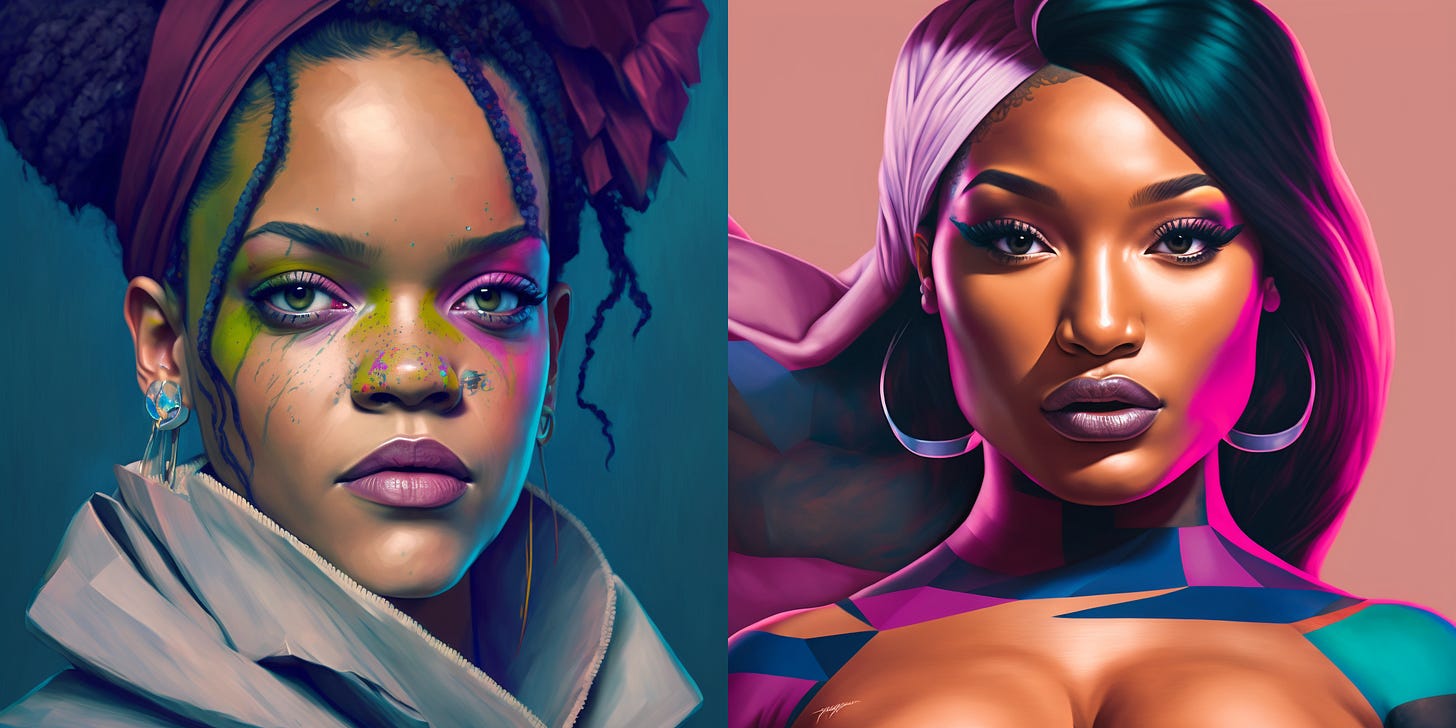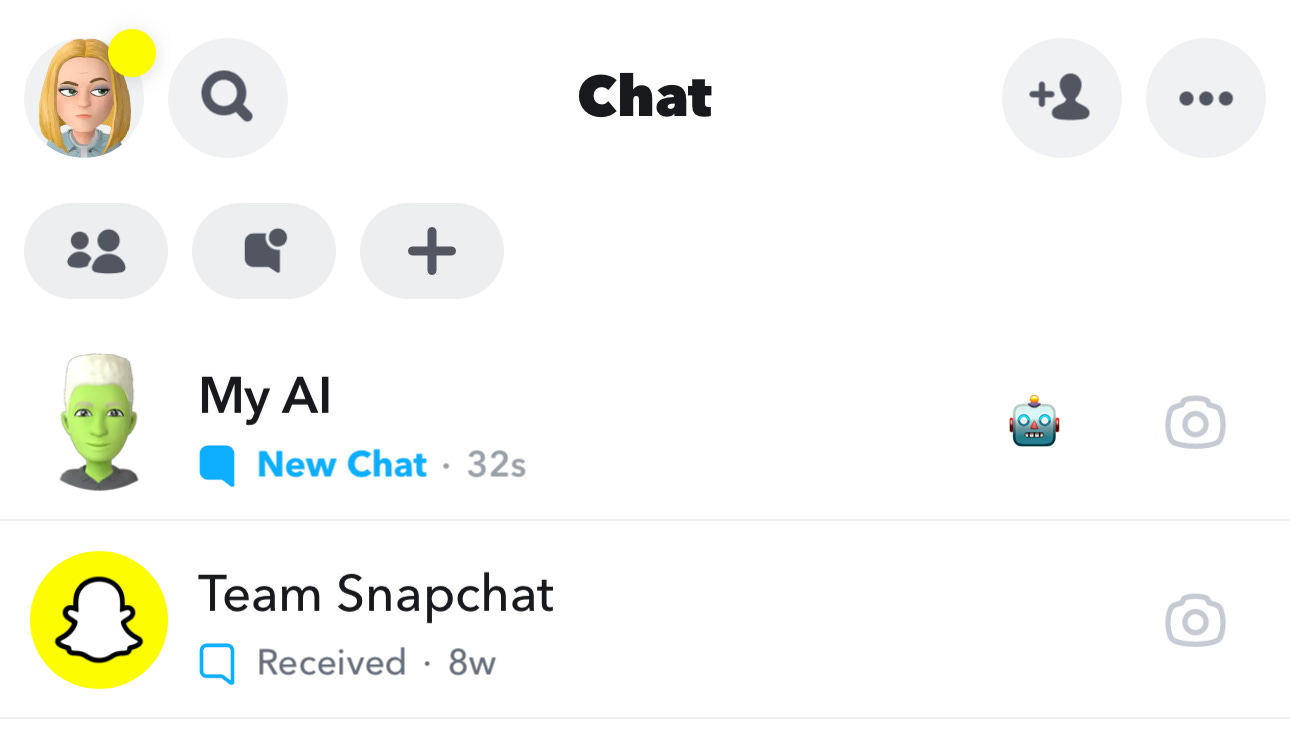AI Roundup 012: The music industry is about to get weird
April 28, 2023
About that Drake song…
As it turns out, the viral AI Drake/The Weeknd song wasn’t a one-off (surprise, surprise). The AI Hub is a Discord server with over 21,000 members dedicated to producing tracks with AI vocals, including artists like Rihanna, Travis Scott, and Megan Thee Stallion.
Between the lines:
As we mentioned last week, the legal status of cloned AI singers is very unclear. Labels are scrambling to kill these AI albums, even as apps like Musicfy make generating them easier than ever.
I'm far from an expert, but this Q&A with an IP lawyer was a helpful starting point.
If you can’t beat ‘em, join ‘em: Grimes tells her fans to use her voice freely, and she’ll split any royalties 50/50.
Elsewhere in legal stuff:
The Supreme Court declined to hear a challenge to a USPTO decision about AI patents. That means, for the time being, only humans can claim patents1.
OpenAI is trying to trademark GPT. It’s unclear whether they’ll be successful, but “GPT for X” apps should be on notice.
Harvey, a company building generative AI for law firms, is moving forward with a $21M Series A.
FAANG free-for-all
We've repeatedly touched on the conspicuous absence of Apple and Meta from the AI arms race. Now, we have some answers as to why. Not one but two profiles this week detailed Apple and Meta's internal strife and dysfunction in pursuit of AI.
The bottom line:
Not all tech giants are created equal when it comes to building AI. But it's clear that they're all taking this very, very seriously.
The size of the opportunity is pushing some companies to move fast and break things. Snapchat's "My AI" feature, much like Bing Chat, was rolled out this week well before it was ready for primetime.
Luckily, companies are also working on tools to make things safer. Nvidia’s NeMo Guardrails wants to make it easy to build LLMs that are “accurate and appropriate.”
Open source saviors?
Right now, OpenAI is the clear frontrunner in the generative AI space, but there's still some open-source competition. Not one but two open-source ChatGPT alternatives were announced recently - StableLM from Stability AI and HuggingChat from HuggingFace.
Why it matters:
Most likely, these models will perform decidedly worse than OpenAI’s. But if you believe that generative AI should not be in the hands of a few for-profit companies, these open-source efforts are pretty important.
However, there’s still a funding constraint: training state-of-the-art models means spending hundreds of millions or more. We don't know yet how open-source AI will fund itself in the long term.
Though there are efforts to create building blocks to make model development easier. Here’s a look at LAION, a free training dataset of over 5 billion images used by Stable Diffusion and Google.
Things happen
Apple is working on Quartz, an AI health coach. TikTok is working on generative AI avatars. The RNC used AI art in its attack ad against Biden. “As an AI language model” is starting to appear in Amazon reviews. A DHS task force will evaluate how AI can protect the country. The AI business influencer guys must be stopped. China says chatbots must toe the party line.
Thanks to reader Timothy B Lee for pointing out this case was over patents, not copyright!






